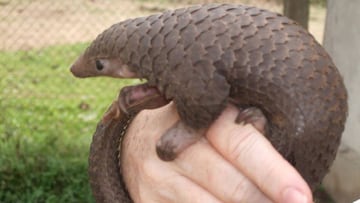Coronavirus: new study places pangolin at centre of Covid-19 pandemic
The unfortunate mammal, which is one of the most-traded globally on the black market, could be the original host for Covid-19 fresh research suggests.

A new study has reaffirmed that the current coronavirus Covid-19 outbreak sweeping the globe could well have originated from the pangolin, as initial research in China in February after the first outbreak in Wuhan was detected.
"The role that pangolins play in the emergence of SARS-CoV-2 [the cause of COVID-19] is still unclear," Professor Edward Holmes of the University of Sydney stated in a paper published in Nature. "However, it is striking is that the pangolin viruses contain some genomic regions that are very closely related to the human virus. The most important of these is the receptor binding domain that dictates how the virus is able to attach and infect human cells."
Researchers call for ban on "wet markets" and illegal wildlife trade

Related stories
Pangolins are among one of the most widely traded creatures on the international black market and are used not only as a source of food in many countires but also in traditional Chinese remedies. Of the eight species of pangolin, three are listed as critically endangered, three as endangered and two as vulnerable on the Red List of Threatened Species of the International Union for Conservation of Nature.
The study carried out by Professor Holmes and his team, who worked with Chinese researchers on the paper, suggested that tackling the illegal wildlife trade could be key to preventing further pandemics like Covid-19: "It is clear that wildlife contains many coronaviruses that could potentially emerge in humans in the future. A crucial lesson from this pandemic to help prevent the next one is that humans must reduce their exposure to wildlife, for example by banning ‘wet markets’ and the trade in wildlife," the paper concluded.
